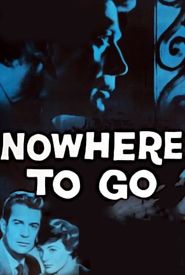Kenneth Peacock Tynan, a luminary figure in the realm of English theatre, left an indelible mark on the British theatrical landscape, his influence permeating every stratum of the industry, a testament to his boundless talent and unwavering dedication.
As a theatre critic, Tynan's astute observations and insightful reviews earned him a reputation as a foremost authority on the subject, his opinions highly regarded and widely sought after by the theatrical community.
In addition to his work as a critic, Tynan's own writing was characterized by its wit, erudition, and linguistic flair, his essays and articles a delight to read and a testament to his mastery of the written word.
Throughout his illustrious career, Tynan's influence extended far beyond the confines of the theatre, his impact felt in the worlds of literature, journalism, and the arts more broadly.
Tynan's legacy continues to be celebrated and studied by scholars and enthusiasts alike, his contributions to the world of British theatre a lasting reminder of his singular talent and unwavering passion.
Tynan's foray into the world of literary criticism began at The Observer, a prestigious publication where he wielded significant influence, utilizing his expertise to champion the works of nascent playwrights, with a particular emphasis on John Osborne's groundbreaking play, Look Back in Anger, which made its debut in 1956.
His scintillating review of the play played a pivotal role in cementing Osborne's status as a prominent figure in British theatre, thereby clearing the way for a plethora of talented playwrights to burst forth onto the scene.
Tynan's profound impact on the literary sphere transcended the realm of criticism, as he was subsequently appointed to the esteemed position of literary manager of the National Theatre Company in the year 1963.
Tynan's illustrious career was marked by both impressive accomplishments and provocative controversies, with his unwavering stance on theatre censorship serving as a notable example. As a vocal advocate for artistic freedom, he fearlessly opposed censorship measures, consistently challenging the prevailing norms and conventions of British theatre.
Notable among Tynan's numerous instances of boldly pushing the boundaries of societal norms was his deliberate and unapologetic deployment of robust and explicit language on British television. This daring move, which was met with controversy and widespread debate at the time, ultimately played a significant role in carving out a path for greater artistic liberty and freedom of expression in the realm of British theatre and television.
Tynan's later years were marked by a significant relocation to the sun-kissed state of California, a move that would prove to be a catalyst for the reinvigoration of his illustrious writing career.
As he settled into his new surroundings, Tynan's presence in the world of theatre remained as strong as ever, his influence and impact continuing to be felt far and wide.
Despite the numerous accolades and achievements that had come his way, Tynan's life and legacy remained a rich tapestry of contradictions and complexities, a multifaceted individual whose contributions to the world of British theatre, and beyond, continue to be celebrated and studied to this very day.
























